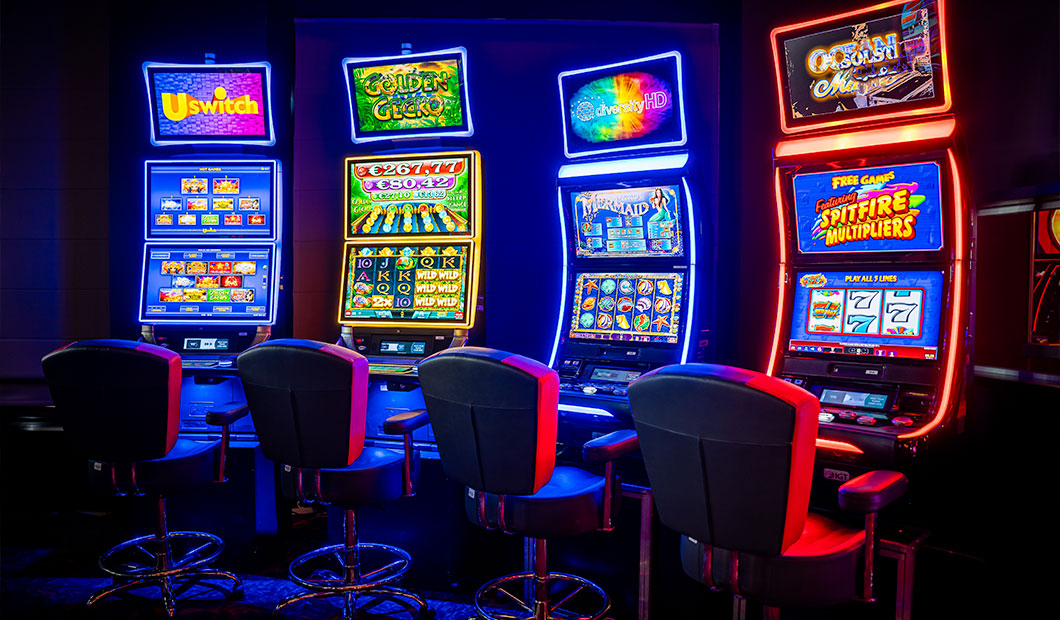
The world of casino games has experienced a remarkable transformation in recent years, driven by tech advancements and shifting player tastes. As more gamers shift to online mediums for leisure, conventional gambling games are being increasingly modified to satisfy the demands of a tech-savvy audience. This transition not only involves the shift from brick-and-mortar to virtual spaces but also covers the evolution of gameplay mechanics and player engagement strategies.
In this new digital age, video game creators are leveraging innovative technologies to create immersive environments that resonate with a varied range of gamers. From web-based fruit games with stunning graphics to dynamic table activities that replicate the atmosphere of a live gambling hall, the adaptation process is redefining how we perceive and experience casino activities. As we explore this fascinating journey, it becomes clear that the prospect of gaming lies in the seamless fusion of advanced technology with the timeless appeal of chance and tactics.
The Progression of Gambling Entertainment
Casino games have gone through significant changes throughout history, showing transformations in technology, culture, and player preferences. In ancient times, basic activities of chance were enjoyed using simple items such as stones and bones. As civilizations evolved, so did the complexity of these games. The introduction of card games in the medieval period marked a key moment, culminating to the creation of well-known games like poker and blackjack, which are still played in the present. Over the centuries, the physical layout of gambling establishments has also evolved, shifting from small local locations to grand, ornate establishments.
The 20th century witnessed a revolution in the world of gambling games with the advent of electronic gaming. Slot machines appeared as a favored attraction, captivating gamblers with their colorful lights and audio effects. This era also saw the rise of gambling hotels, which integrated high-end accommodations with a diverse array of casino options. The launch of video games further broadened the field, allowing for more intricate designs and gaming mechanics. These innovations not only pulled in a wider audience but also changed the way gambling games were experienced.
With the rise of the internet in the final 1990s and early 2000, gambling entertainment moved into a new online phase. Online casinos appeared, providing participants with the ease of gaming from their own spaces. This transition required game developers to rethink traditional mechanics and adapt them for an engaging digital environment. Currently, advancements in technology, including mobile gaming and virtual reality, persist to shape the progress of casino entertainment, creating engaging experiences that captivate gamblers like never before.
Key Features of Virtual Casino Experiences
Virtual gambling experiences have changed the way players engage with gaming by providing engaging experiences that replicate the thrill of physical casinos. One of the most important features is the incorporation of top-notch graphics and animations, creating a visually stunning captivating environment. Designers focus on offering lifelike themes and enthralling storylines that entice players into the game, boosting their overall experience. The ability to offer 3D visuals and spectacular sound effects means that players can savor a vibrant atmosphere similar to what they would experience on a casino floor.
Another essential aspect of online gambling games is the ease of access they offer to users globally. Web-based services enable individuals to play their most-loved games from the comfort of their own abodes or on the go through portable devices. This comfort is accompanied by a diverse selection of gaming choices, including video slots, table games, and live gaming experiences. Players no longer need to commute to a brick-and-mortar venue to enjoy their beloved betting experiences, allowing a larger audience to engage with casino games.
Lastly, digital casino games frequently incorporate creative features such as interactive gameplay and social interactions. Many games now allow players to compete against one another, participate in tournaments, or even broadcast their accomplishments on online platforms. This transformation encourages a community spirit among players while promoting healthy competition. Additionally, features like personalized avatars and in-game chat options improve social interaction, making the digital gaming experience even more enjoyable for all users.
What Lies Ahead of Online Gaming
As technology makes progress, the landscape of online gaming is poised for significant evolution. Virtual and enhanced reality are disrupting the industry, offering players an immersive experience that reflects the atmosphere of being in a brick-and-mortar casino. These advancements create opportunities for developers to introduce unique game formats and interactive features, reshaping how players interact with their favorite casino games.
Additionally, the integration of smart technology is improving user experiences and personalizing gameplay. AI can examine player behavior, recommend tailored game options, and improve customer support through chatbots. This tailoring not only maintains players interested but also assists build a dedicated community around certain casino platforms, placing them for success in a competitive market.
Finally, the rise of smartphone gaming is another crucial factor shaping the future of online gaming. With an ever-growing number of players accessing casino games on their smartphones, developers are gearing up for optimizing their platforms for mobile use. This change allows players to play casino games anywhere, paving the way for a more versatile and accessible gaming environment that attracts a broader audience.
bukti4d resmi
